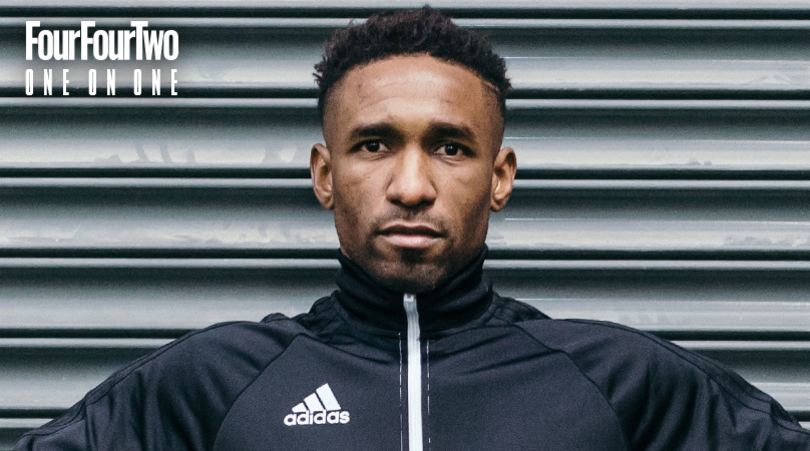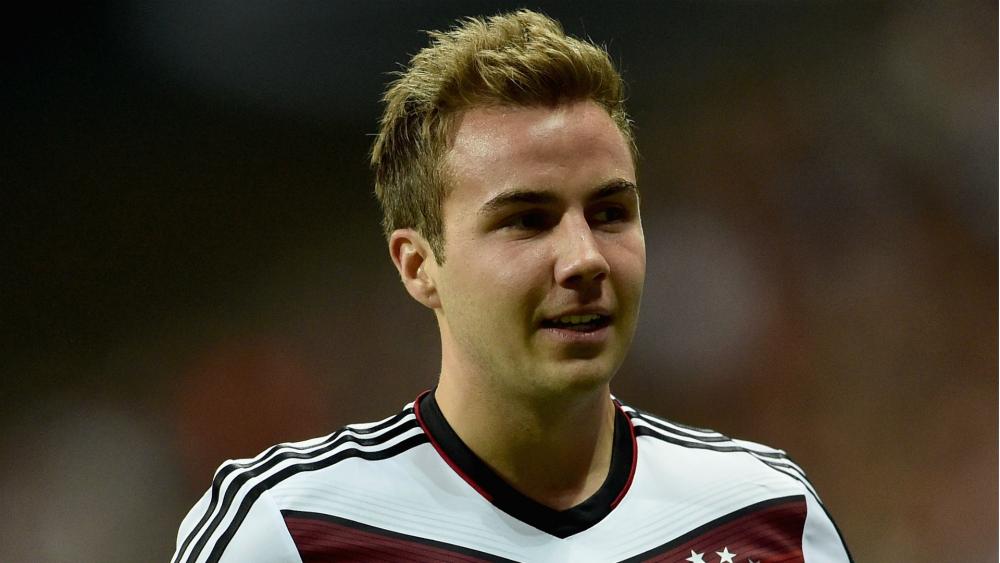The big interview: Clarence Seedorf – "The manager who had the biggest cultural impact on me? Sven-Goran Eriksson"
Which of his four Champions League wins was the best? What's better: the Milan derby or El Clasico? And what happened to the dreadlocks? Your questions answered in April 2011
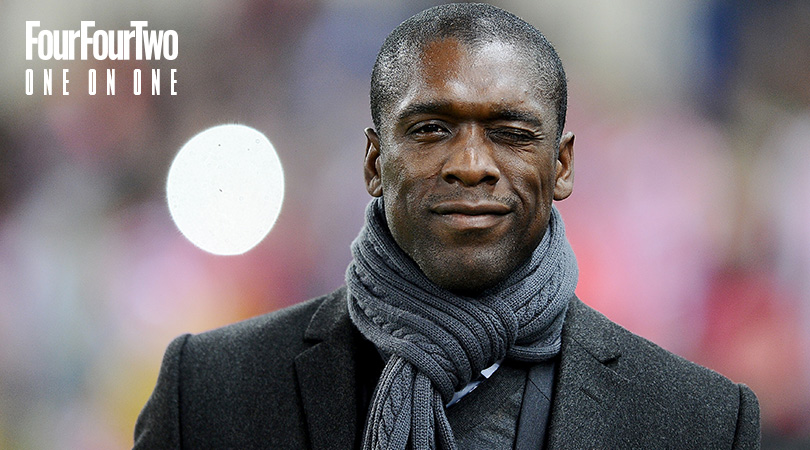
FFT has visited many a fine training complex over the years but Milanello, the Milan camp, really is something else. Nestled in the shadows of the Italian Alps, it’s a 160,000sq.m. oasis where the Rossoneri train, sleep, socialise, relax by the lake or visit the famed Milan Lab – the secret to the longevity of so many of the club’s stars.
Players commute here from the city – it’s about an hour by car. Clarence Seedorf never drives, though. On the back seat of his car, he makes calls, reads financial newspapers, writes on his laptop. Like a CEO. Well, actually… he is a CEO. He’s head of several companies and has a lot of interests. He’s a peculiar athlete in that his brain is trained as much as his muscles.
The last time we met him here was on the day of Ronaldinho’s arrival in 2008. The press room was packed. Everyone was waiting for a photo of the famous shirt with ‘Ronaldinho’ and ‘10’ printed on it. After all, this was a man who’d made his ‘R10’ logo a global brand. At the end of the presentation, however, Milan vice-president Adriano Galliani, looking embarrassed, announced that ‘Dinho’s’ new number was 80. No.10 was Seedorf’s – and he wasn’t giving it up for anyone. Changing the Coca-Cola logo would have created less noise. No one could believe it.
This time we’ve come armed with your posers to reflect on the career of a man with one of the most impressive trophy hauls in football (just look at that fact file!). We begin in Amsterdam, where he became Ajax’s youngest ever player...
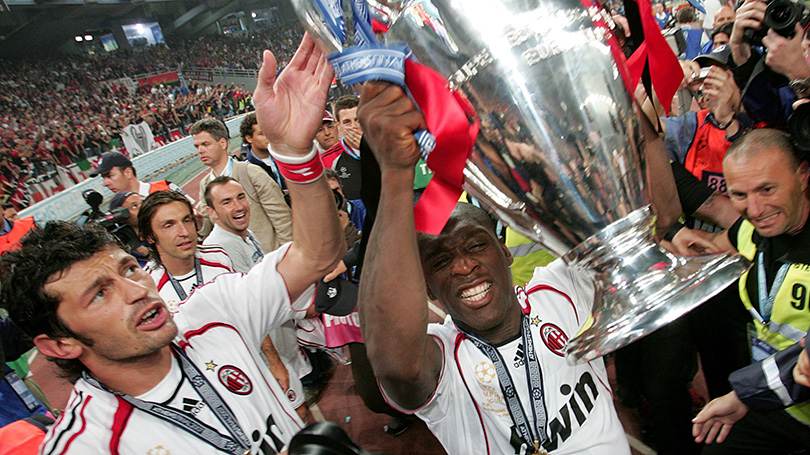
Eredivisie 1994, 1995; KNVB Cup 1993; La Liga 1997; Copa del Rey 1997; Serie A 2004, 2011; Coppa Italia 2003; Champions League 1995, 1998, 2003, 2007;Campeonato Carioca 2013
I heard somewhere that your parents turned down an offer from Real Madrid when you were 15. Did you agree with their decision? Did you even get a say in the matter?
Taylor Holman, Dallas
Yes, Real Madrid were after me and it was me who turned them down. It was a decision I was fully part of. I was happy at Ajax, and more importantly, I had to finish school. That was the reason I turned Real down. School first, football later. At 15, that made sense, wouldn’t you say?
You’re still Ajax’s youngest ever debutant, making your first appearance at just 16. What was going through your mind on that day in 1992? Confidence? Nerves? Terror?
Alex Andrews, Glasgow
I was living a dream. I’d already been training with the first team squad for four months, alternating them between training with the second team and going to school. Then that year I was put in the first team matchday squad and it felt like the most normal thing in the world. But years later you realise that this was anything but normal. Ajax back then were truly special; putting boys in the first team was part of their culture. I talk in the past because the game today doesn’t allow any teams to oversee the growth of a youngster. That’s not Ajax’s fault; it’s the world of football that has changed. You aren’t left to develop. Now, if a boy shows potential, big European clubs whisk them away.
Get FourFourTwo Newsletter
The best features, fun and footballing quizzes, straight to your inbox every week.
Was it a hard decision to leave Holland to play for Sampdoria in Italy when you were just a teenager?
James Hodges, Colchester
My discussions with my parents gave me the chance to make a decision with a lot of thought. It is always difficult to leave a place and people that you love, but on a personal level I was looking for a new experience so I went. It was the right thing to do for my career at the time.
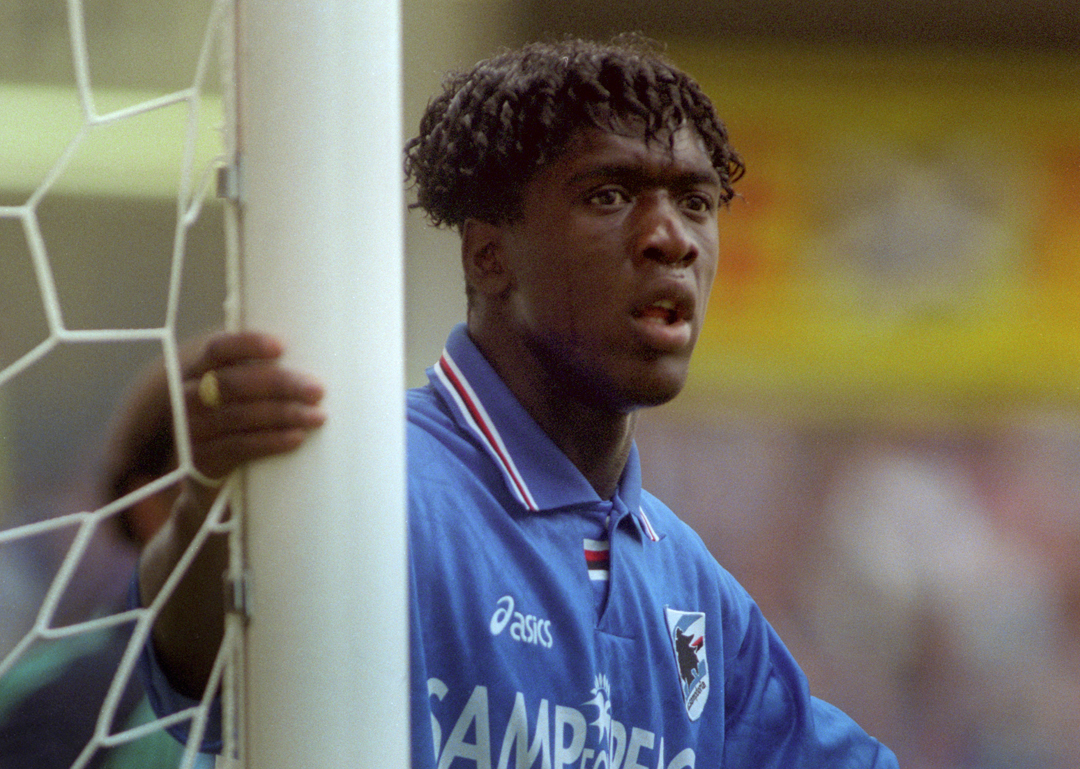
1992-95 Ajax 90 apps (11 goals)
1995-96 Sampdoria 34 (4)
1996-00 Real Madrid 193 (26)
2000-02 Inter 91 (14)
2002-12 Milan 432 (63)
2012-13 Botafogo 59 (17)
How did it feel scoring on your international debut when you were 18? Did you feel that even at such a young age, you’d arrived?
Danny Fletcher, London
Yes, I made my debut against Luxembourg. That too was a fantastic year. I won Best Young Player in Holland, voted for by players and coaches, and then made my debut for the national team. Then a goal immediately. Really, what more could you ask for?
Do you remember Real Madrid with much fondness? How did La Liga compare to Serie A?
Sammy Pendo, via email
I have very pleasant memories of Madrid, where I spent three fantastic years. There is still a feeling of mutual affection between Madrid, Spain and I. The differences between Serie A and La Liga? If I had to outline them, I’d say in Spain beautiful play and ball possession counts for more than the result, but in Italy it is the exact opposite, because winning is the thing that counts the most. Milan are a good combination of beauty and the result.
If you had to pick one, which would it be: the Milan derby or El Clasico?
Christian Brown, via Facebook
I couldn’t pick. I saw Chelsea vs Arsenal at Stamford Bridge last season, but there is nothing like Milan vs Inter or Real vs Barcelona, which are from a different world. Atletico vs Real Madrid, also, was highly charged, but not like the game with Barça. And I’d add Juventus vs Inter to the list. The atmosphere you feel from the crowd in these games is like no other, and it influences you down on the pitch, believe me.
Some of us used to love the dreads, Clarence. What made you decide to shave it all off? Is there any chance of a return?
Tim Zachary, via email
Ha, ha! Who knows, there’s always hope! I've changed look loads of times and I had the dreads for seven years, even if they were inconvenient for playing football. I had to constantly re-arrange them and when it rained they were troublesome. But I loved those dreads so much!
Fabio Capello’s dictatorial style seemed to backfire for England at the 2010 World Cup. What was your experience of Don Fabio when he was your boss at Real Madrid?
Charlie Lennard, Banstead
I know that to you guys in the UK he is seen as being a bit severe, and maybe, in the nicest sense of the word, it is true. Fabio is a great coach who knows how to manage a group in a serious way. But when the time is right he can have a joke. There is a difference between acting serious and being serious. I owe Capello a lot and will always have him in my heart. I bumped into him at the Chelsea vs Arsenal game and it was a pleasure to see him again and to give him a hug.
Oh go on then... any excuse
How was it moving from Inter to their city rivals Milan? Did you get much abuse?
Mauro Fazzini, via email
I have been very lucky in that fans have always respected me. I see that every day in Milan. I have a great relationship with Inter president [Massimo] Moratti and have remained friends with former team-mates like Ivan Cordoba and Javier Zanetti. Inter fans I meet ask me if I’ll ever re-join the club. Everyone understood that my decision to join Milan wasn’t taken in a hurry and they respect that.
Who’s the best you’ve ever played with?
Keith Donaldson, Kirkcaldy
Ronaldo, the No.9. He was from another planet. I saw him in Holland when he had no physical problems and moved at 3,000 kilometres per hour. Then I met him more recently, when his body wasn’t doing him any favours. But even so, he could intuitively see what was happening 10 times quicker than the others. Sadly, though, in modern football, if you’re struggling physically even incredible talent isn’t enough.
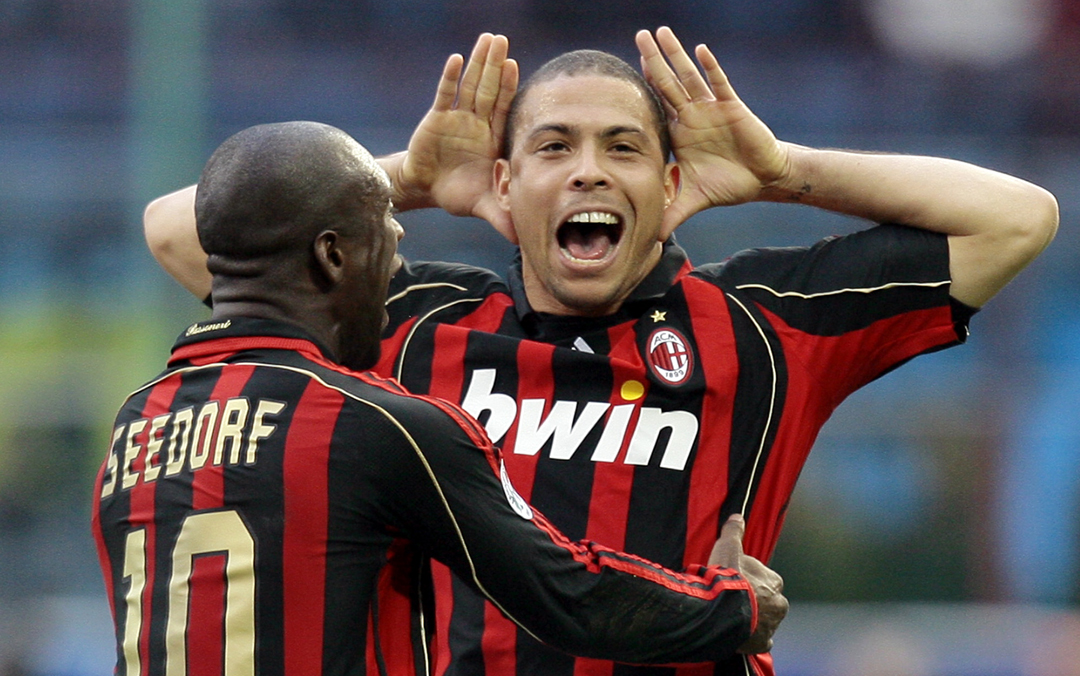
What exactly did you do to upset Marco van Basten for him to drop you for Holland when you were playing so well? Do you look
back on your international career as one of missed opportunities?
Payton Noster, via email
That question isn’t really correct, because right from Van Basten’s first game as national coach he left me out of the squad. He only called me up after two-and-a-half years, by which time I’d missed the 2006 World Cup. Therefore to say I did something to upset him is utterly wrong: I never even had the chance to meet up with him. I have the same issue with current Holland coach Bert van Marwijk, despite the fact I have clearly made myself available for the national team. Mark van Bommel and I made ourselves available again after Van Basten left. Van Bommel was called back, but I haven’t even had a phone call.
You were the first player to win the Champions League with three clubs. Which trophy holds the best memories for you? Out of these wins, which team-mate hogged the cup the most?
Rob G, via Twitter
When you have four ‘children’ you can’t choose a favourite. Of course with Ajax, six or seven of us came from the youth team, including Kluivert, Bogarde and Davids, so I feel a special bond with that one. But we were also a strong group in Madrid: Karembeu, Panucci and Mijatovic. And there is the group at Milan that you see every day. Furthermore, the beauty of victory is that it is an explosion of emotion that breaks down any barriers. When you win, you all win together. Always.
At Milan he had a quieter life, that he was not used to. When he is with his wife there is a bit more, shall we say, furore
I think you were probably the best BBC pundit at the 2010 World Cup. Were you nervous before you started, or was it easy for you?
Lee Thorp, Derby
I’d already had TV experience, so at the World Cup it was a case of getting to know people and the system. My management had worked hard before to make sure I could settle into the new environment. In South Africa it clicked quickly, thanks to Alan Shearer, Gary Lineker, Lee Dixon and Alan Hansen. It was a positive experience with the BBC.
What did you make of Holland’s tactics in the World Cup final? I thought Nigel de Jong should have been arrested!
Hilary Taylor, via email
Now and then, De Jong has been ‘over-zealous’ and very lucky with referees in these situations. The tackle on Ben Arfa was perhaps not so nasty, although it caused a terrible injury, but the challenge in the World Cup final deserved a red card and three months in jail. He is a warrior like Edgar Davids, but he has to control himself so he doesn’t risk condemning his team-mates to playing matches with 10 men. He can improve in that area, if there is someone to have a word with him. If not, I’ll give him a call and do it, because I like him a lot.
After Manchester United’s game against Milan in the 2009/10 Champions League, Wayne Rooney said you were the best player he’d ever faced. Did that mean a lot to you, coming from him? Or do you ignore any hype?
Duncan Smith, via email
Of course, it made me very happy. Considering when he said it too, when he was in the kind of form that made him among the best attackers in the world – if not the best. That’s why his comments had extra value to me. Recognition from fellow players is a rare thing, so a compliment like that from Wayne Rooney puts me in a good light and says a lot about him.
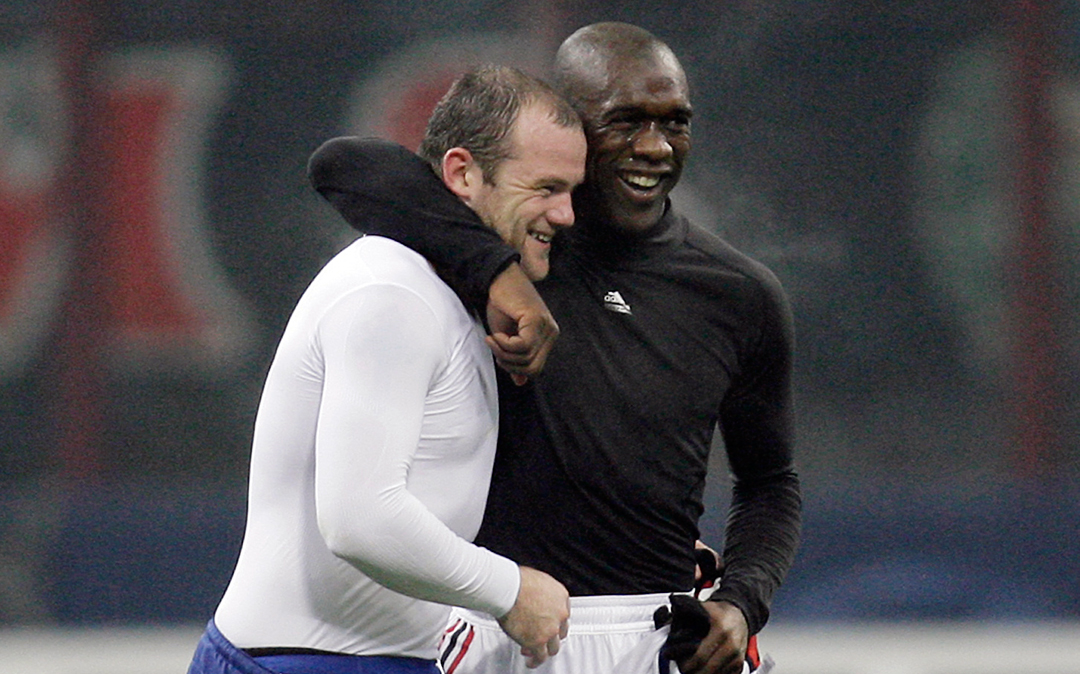
You seem like a busy man, Clarence. What hobbies do you have outside football?
Marc Florence, via Twitter
I love tennis but obviously don’t have the time or energy to play during the football season. So I make do with watching it on TV. During my holidays I play, though. I’m told I’m not bad with a racket. Boris ‘Boom Boom’ Becker is my favourite player of all time. He is also a friend. Plus, if you can call well-being and looking after yourself a hobby, I like a spa. Every now and then I treat myself. It’s good for the mind.
You’ve played under some great managers: Capello, Ancelotti, Hiddink, Eriksson, Van Gaal... who taught you the most?
Mumjak Ahmed, via email
Van Gaal gave me a debut at 16, and even though the others are great coaches, the one who had the biggest cultural impact on me was Eriksson. He taught me that even on the pitch you have to adapt to the culture of the country you are in. I remember one such occasion like it was happening now: he and I were sitting on the bench, and he explained to me that among a load of bricklayers the work of the architect can go unappreciated, so I had to put a few bricks down. At Ajax I had been taught to intercept passes without going after the man, because I knew he would have passed it anyway and my run would have been pointless. I continued to think that way but everyone thought I was lazy for not running. I knew it was the right attitude, and Eriksson did too, but if no one else did, I realised I needed to adapt. So I started laying bricks. I learned a lot about how to behave abroad. It was a key moment for me.
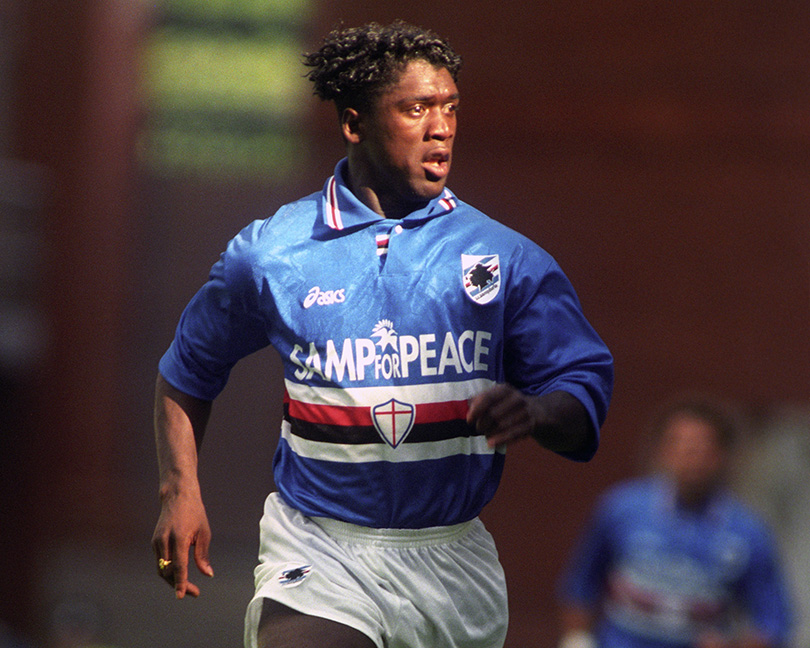
You’re studying for a masters degree in business. Do you have to go to class like all the other students? How are you planning to use this degree in the future?
Gary D, via Facebook
I am doing a masters at Bocconi [the most important economics university in Italy] and it is obviously a special course because it’s not possible for me to go to the lecture theatre every day. What I am learning isn’t for the future – I am using it now. I have my businesses to manage, and what I want is know-how, not just a certificate.
How do you feel about a video of you being tackled by a five-year-old [Daniel Maldini, Paolo’s son] becoming an internet sensation?
Jose Juertas, via email
That video is cool! There were 15 kids trying to get the ball from me, but Daniel showed talent. Keep an eye on him: he could become very good.
Who is the toughest defender you’ve ever played against? Did you ever line up against a team and think, “Oh no, he’s playing”?
Terry Ash, Sligo
Lilian Thuram. He was as hard as wood – wherever you touched him, it hurt you! But Thuram wasn’t happy playing against me either, because I loved throwing in little dummies and he hated them. And because he didn’t like them, he would kick me. So it was always really irritating.
You were born in Suriname, which has produced players like Davids, Hasselbaink, Rijkaard, Gullit and Kluivert – is there something in the water?
David Kerr, Surrey
Ha, ha – and Babel, Bogarde, Winter… mamma mia, there’s so many of us! But it’s our great grandparents who drank the ‘special’ water! We are the lucky ones to have reaped the benefits.
I’ve always considered you to be an excellent role model – a model pro. Who do you look up to for inspiration?
Joe West, via email
Nelson Mandela, for his moral integrity, courage, willpower and enlightened ideas. I had the honour of meeting him when I was named the ‘Legacy Champion’ of Mandela’s foundation. I can’t tell what kind of an emotion that was. Finding yourself face to face with a man who has written History with a capital ‘H’ is impossible to describe.
You were rather cynical about David Beckham coming to Milan – have you changed your mind at all?
Kerry Weston, Nuneaton
I was never against his arrival, because I’ve always thought, right from the start, that as well as being a winner, David is great guy. We’re good friends and speak often. In fact, we spoke yesterday. In Italy they were surprised by his professionalism on and off the pitch, but I wasn’t. At Milan he was living a different life, more relaxed than he was used to. He was on his own... without his wife. When he’s with her, there is a bit more, shall we say, furore.
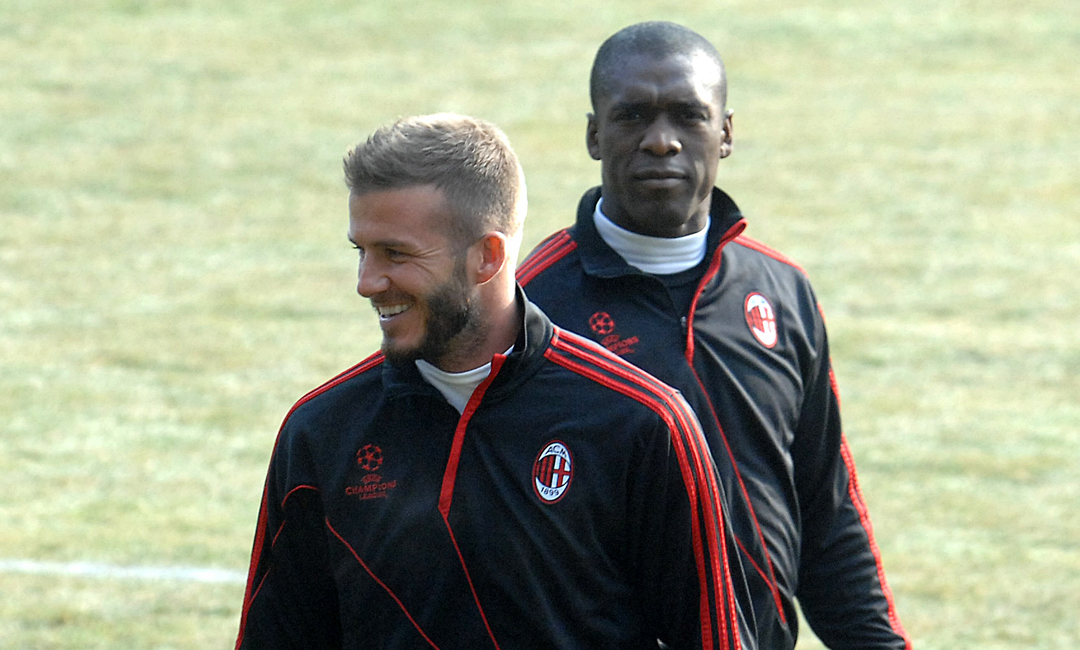
This feature originally appeared in the April 2011 issue of FourFourTwo. Subscribe!
